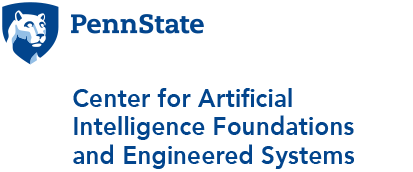Nathaniel Bastian
AI Foundations
- Stochastic and robust optimization algorithms
- Federated machine learning and inference
- Distributed decision-making under uncertainty
- Multimodal data processing and fusion
- Generative methods for synthetic data generation
- Meta-learning and ensemble methods
AI Applications
- Cybersecurity, Military, National Security, Internet of Things, Healthcare, Finance
Externally Funded AI Projects
- Generative Methods for Cyber (NSA)
- Evaluating Model Robustness to Machine Learning Data Contamination Attacks (Army C5ISR)
- Assessment of Intelligent and Assured Autonomous Cyber Decision-Support Systems (Army C5ISR)
- Enabling the Safe and Responsible Use of Reinforcement Learning (ARL)
- Principles of Robust Learning and Inference (ARL)
- Optimization for Learning, Inferencing, and Decision Making (ARL)
AI-Related Courses
- BAN 888 Implementing Analytics for Business
- DAAN 881 Data-Driven Decision Making
Webpage
directory.smeal.psu.edu/ndb141
Publications
- Cobb, A., Jalaian, B., Bastian, N. & Russell, S. (2021). Robust Decision-Making in the Internet of Battlefield Things Using Bayesian Neural Networks. Proceedings of the 2021 Winter Simulation Conference (Ed. Kim et al.). IEEE. To appear.
- Chalé, M. & Bastian, N. (2021). Challenges and Opportunities for Generative Methods in the Cyber Domain. Proceedings of the 2021 Winter Simulation Conference (Ed. Kim et al.). IEEE. To appear.
- Goethals, P., Scala, N. & Bastian, N. (2021). Operations Research. In Daniel Bennett, Paul Goethals and Natalie Scala (Ed.), Mathematics in Cyber Research. Boca Raton, FL: CRC Press. To appear.
- Cobb, A., Jalaian, B., Bastian, N. & Russell, S. (2021). Towards Safe Decision-Making via Uncertainty Quantification in Machine Learning. In William Lawless, Ranjeev Mittu, Donald Sofge, Thomas Shortell and Tom McDermott (Ed.), Systems Engineering and Artificial Intelligence. Springer. To appear.
- Bastian, N. (2021). Artificial Intelligence for Defense Applications. Journal of Defense Modeling and Simulation, 18(3): 173-174.
- De Lucia, M., Maxwell, P., Bastian, N., Swami, A., Jalaian, B. & Leslie, N. (2021). Machine Learning for Raw Network Traffic Detection. Proceedings of the 2021 SPIE Conference on Artificial Intelligence and Machine Learning for Multi-Domain Operations Applications III (Ed. Pham et al., 117460V), pp. 117460V-1 – 117460V-10, SPIE Defense + Commercial Sensing (Volume: 11746).
- Painter, C. & Bastian, N. (2021). Generating Genetic Engineering Linked Indicator Datasets for Machine Learning Classifier Training in Biosecurity. Proceedings of the 2021 SPIE Conference on Artificial Intelligence and Machine Learning for Multi-Domain Operations Applications III (Ed. Pham et al., 1174624), pp. 1174624-1 – 1174624-6, SPIE Defense + Commercial Sensing (Volume: 11746).
- Courtoy, J. & Bastian, N. (2021). Three Things Leaders Need to Know Before Investing in Artificial Intelligence. Phalanx, 54(1): 32-37.
- Devine, S. & Bastian, N. (2021). An Adversarial Training Based Machine Learning Approach to Malware Classification under Adversarial Conditions. Proceedings of the 54th Hawaii International Conference on System Sciences, pp. 827-836. ScholarSpace.
- Kerwin, K. & Bastian, N. (2021). Stacked Generalizations in Imbalanced Fraud Data Sets using Resampling Methods. Journal of Defense Modeling and Simulation, 18(3): 175-192.
- Shipp, T., Clouse, D., De Lucia, M., Ahiskali, M., Steverson, K., Mullin, J. & Bastian, N. (2020). Advancing the Research and Development of Assured Artificial Intelligence and Machine Learning Capabilities. Proceedings of the AAAI Fall 2020 Symposium on AI in Government and Public Sector. arXiv:2009.13250.
- Bastian, N. (2020). Building the Army’s Artificial Intelligence Workforce. The Cyber Defense Review, 5(2): 59-63.
- Chalé, M., Bastian, N. & Weir, J. (2020). Algorithm Selection Framework for Cyber Attack Detection. Proceedings of the 2nd ACM Workshop on Wireless Security and Machine Learning, pp. 37-42. ACM Digital Library.

Nathaniel Bastian
Adjunct Professor, Data Analytics and Business Analytics


